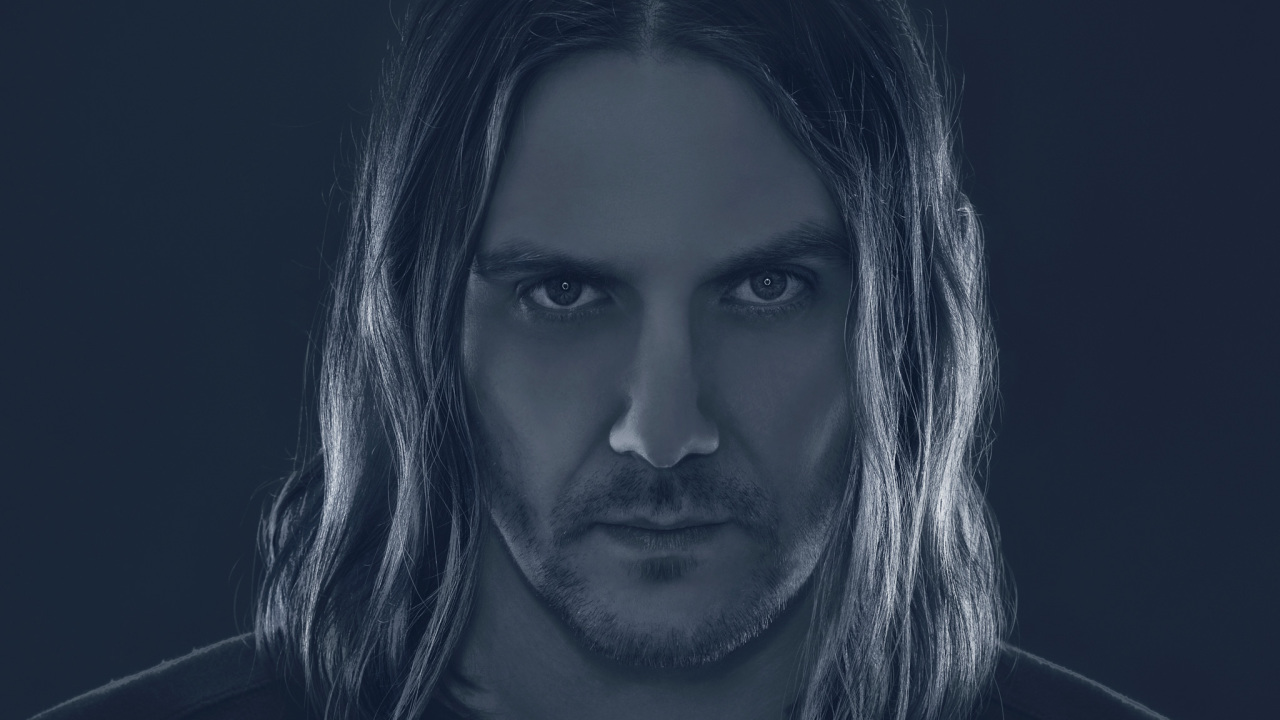By the time Mariusz Duda unveiled Lunatic Soul, his musical alma mater Riverside had already released three studio albums of robust and artful modern prog and established themselves, for better or worse, as Poland’s answer to Porcupine Tree.
Lunatic Soul released their debut album, simply titled Lunatic Soul I in 2008 and have subsequently six more albums, up to and including 2020's Through Shaded Woods, which haveseen Duda evolve the band's sound fron the post-rock electronica of the early albums to a more Nordic folk sound. Given Duda's new solo career away from both Riverside and Lunatic Soul seems him further exploring electronic textures, it will be interesting to see where he goes with LS.
The New Beginning [from Lunatic Soul, 2008]
Neither a bona fide solo project nor a stopgap diversion, Duda’s first significant release away from his band was certainly recognisable as the voice of Second Life Syndrome and Rapid Eye Movement, but this was an altogether more experimental, unconventional and, most importantly perhaps, unsettling beast. Using a more esoteric sonic palate that looked to the East for inspiration and seemingly drawing from an array of electronic and early 80s new wave influences – Jean-Michel Jarre, Peter Gabriel IV and Byrne & Eno’s My Life In The Bush Of Ghosts all spring to mind at various points in the LS catalogue – songs like this shimmering paean to some metaphorical dawning boasted an otherworldly and bleakly introspective allure that had seldom surfaced when Duda was collaborating with others. A hypnotic and brave start.
Lunatic Soul [from Lunatic Soul, 2008]
Although one of the more traditionally structured songs on Lunatic Soul, the project’s (sort of) theme song exhibits an ebb and flow more akin to the startling crescendos of an unexpected moodswing than to anything more pedestrian. “I can’t describe what’s going on with me…” Duda sings with weary elegance, pointing to some unnamed internal torment and subtly indicating the open-ended and exploratory nature of his work away from Riverside. There are acoustic guitars and pummelling drums here, something that Lunatic Soul have drifted purposefully away from over the years, and a touch of unapologetic anthemry in the song’s circular refrain, but it’s the wild but suffocating roar of pitch-black and formless ambience that bleeds through the cracks in Duda’s delivery, transforming a potentially perfunctory album track into something truly extraordinary and affecting.
Transition [from Lunatic Soul II, 2010]
The delicious paradox that exists within Lunatic Soul is that Mariusz Duda has embraced the self-indulgent nature of a solo career with enthusiasm and guile while simultaneously exhibiting a passion for sonic austerity and even outright minimalism within this project’s ever-evolving core. Transition revels in the drawn-out ambient mirage of its lengthy intro before steadily morphing into something far grander and more imposing. It’s one of the most unashamedly proggy things Duda has ever written and yet its vastness is beautifully balanced out by the delicate and restrained arrangement that harnesses the magic of silence and space.
Impression VI [from Impressions, 2011]
As assured and impressive as they were, both Lunatic Soul I and Lunatic II retained some kind of relationship, however slender, with Duda’s work in Riverside. The project’s third missive, Impressions, was something entirely different. Deeply entrenched in left field, it was an album that enabled its creator to fully immerse himself in the worlds of instrumental, electronic and ambient music. The Eastern embellishments and synth-rock pulse of the first two albums reared their heads on occasion, but for the most part Impressions is a wonderfully evocative musical journey into darkly alien territory – a Tangerine nightmare, if you will.
Cold [from Walking On A Flashlight Beam, 2014]
The wordless Impressions had noisily proclaimed Mariusz Duda’s refusal to limit Lunatic Soul to any one sonic or compositional direction and last year’s Walking On A Flashlight Beam upheld that principle with quiet pride. Plunging deeper into the limitless possibilities of electronica, while never relinquishing allegiance to the art of songwriting, this was a dazzling, multi-hued butterfly emerging from the previous album’s impenetrable, anguished cocoon. Once again, Duda’s lyrics wade nobly through existential backwaters, but it’s the unfussy but intricate backdrop of strident percussion, sequenced bass throb and processed machine hiss that wields the greatest emotional clout as Cold skitters through its seven troubled minutes.
Gutter [from Walking On A Flashlight Beam, 2014]
With its feint air of Peter Gabriel’s The Rhythm Of The Heat and its bubbling electronics and programmed beats, Gutter almost completes a circle, taking Lunatic Soul back to the slow-motion birth and blossoming of those first two albums, but Walking On A Flashlight Beam has such a unique and mesmerising character of its own that, somehow, those familiar elements sound gloriously peculiar and fresh all over again. For all its dark textures, Gutter showcases the wide-eyed fascination with music and the possibilities of sound manipulation that has steadily turned Mariusz Duda into one of the most charismatic figures in modern prog (and, as this song demonstrates, he’s a rather brilliant bass player too).

